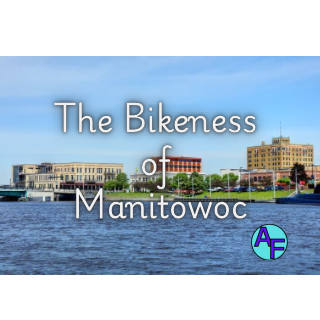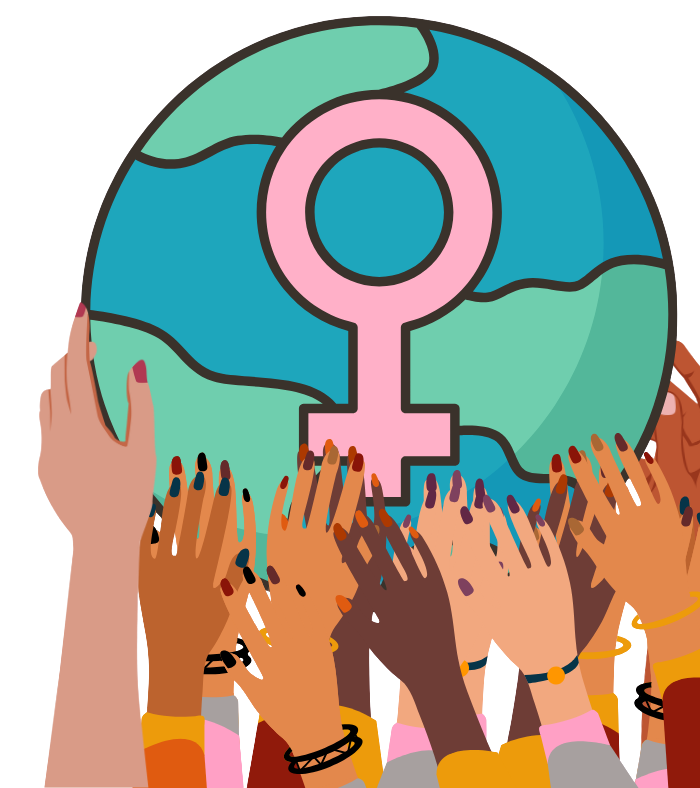Urban areas create unique opportunities to mitigate the climate crisis, dismantle gender oppression, and develop more equitable communities, but many people do not like when their communities are designated as such.
At an art show in Montclair, I was speaking with two gentlemen when I mentioned, “Did you know New Jersey is the most urban state in the U.S.?” They smiled and asked, “Have you been to all of New Jersey?”
This reaction is typical. People often doubt the claim, even though it’s supported by research from the U.S. Census and the U.S. Geological Survey. They’ll counter, “But we’re not as dense as New York.” That’s incorrect, too—New Jersey is the most densely populated state and home to the three most densely populated cities in the U.S.
The term "urban" in the U.S. has evolved beyond its technical meaning. For many outside (and even inside) urban planning, it carries racialized connotations. In U.S. English vernacular, “urban” has often become a euphemism for African American communities, one of the most stigmatized groups in the country. When I, as a visibly Black person, tell a white person in a predominantly white, middle-class area that they live in an urban location, they often take offense. They interpret it as implying they live in a “ghetto.” Ghetto is primarily viewed as Black in the U.S., even though that was not the case in the origins of the term.
After World War II, the term "ghetto" shifted from its modern Jewish origins to become more commonly associated with African Americans (as class, not culture). As Harvard historians note, “ghetto” transcends geography and is rooted in identity, as “urban” has similarly moved beyond its original definition.
As a 14th-generation Upper North American, I admit to feeling a bit of glee when I tell those invested in white hegemony that they are, in a way, what they fear most—urban, but only briefly.
My true goal in communication is to educate. Change perceptions and dismantle divisions.
I’ve started to wonder: Is the term “urban” too fraught with racialized baggage to be salvaged? Should we replace it with a word that unites rather than divides?
Yet, if urban means Black, the division is more of one group running away in terror from another group that there are “bad people on both sides” situation.
Of course, the issue may not be the word itself but rather the biases associated with those who live in urban areas. Urban has a technical definition.
According to the United Nations, the U.S. defines "urban" as:
Agglomerations of 2,500 or more inhabitants, generally with population densities of 1,000 persons per square mile or more.
Urbanized areas: populations of 50,000 or more.
Urban clusters: populations between 2,500 and 50,000.
By this definition, Manitowoc County, Wisconsin—a region with over 1,900 people per square mile and a population of about 80,000—is urban. Yet to most Upper North Americans, Manitowoc doesn’t “look” urban. Even after explaining the above with a table of scholars in Wisconsin, I got pushback when I said Manitowoc was urban.

As the technical definition of urban applies to an increasingly diverse population, should we modernize it, or would that merely formalize gentrification or to quote the phrase James Baldwin popularized, “Urban Renewal means Negro Removal”?
Can the U.S. separate geography definitions from the classism of race and socioeconomics?
The U.S. remains deeply segregated, especially for African Americans, who are more segregated than any other racial or ethnic group, including Latine and Asian Americans. This segregation often results in systemic defunding and economic oppression in areas where African Americans are forced to live owing to de facto racism. That oppression leads to an attaching of a deep level of dysfunction to specific physical locations. In the 20th century, that dysfunction was associated with urban areas where African Americans primarily lived after the second Great Migration after WW2; today, it’s shifting to exurban regions.
Exurbia is technically defined as lower-density development dependent on urban areas and within commuting distance. They used to be predominantly white and higher-income, but now they are becoming Black. Yet another interesting phenomenon is that areas that were predominantly white become reclassified as “urban” or “exurban” as those areas’ African American populations grow. Race appears to be directly tied to parochial geographic descriptions. There seems to be a one-drop situation concerning geographic descriptions. If your community has more than “a drop of Black” people —it can no longer have a suburban designation.
The question remains: Is “urban” a term we can rehabilitate to reflect its original meaning, or is it too tainted by decades of systemic racism and cultural bias? Perhaps the issue isn’t the word itself but the way racism is still very connected to the foundation of housing in the United States.
Instead of replacing "urban" with a term that erases its history and ignores the racism tied to it, we should adopt a term or a description that aspires to unite and inspire, such as "civic" or "civil.” These words, rooted in the Latin term for citizenship, could evoke a sense of shared community and responsibility. Do you like Spatial Civility or Civic Spaces? I think of the documentary “Citizen Jane,” which highlights Jane Jacobs’ fight for her community—a place defined by its capacity for change, diversity, and cooperation. Perhaps this is a path worth exploring— even if we decide urban is fine, it might help us in at least exploring why race (and gender) is so attached to geographic descriptions, where one can live, where one chooses to live, and what we as a community can do to end this practice that is dangerous not only for us as people, but the planet we share.







